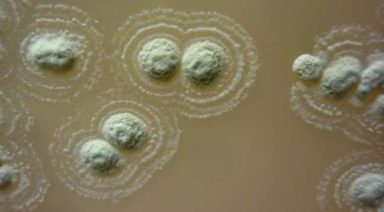10 Ways to Improve Brain Health and Function

The human body is a fascinating machine – with its efficiency surpassed only by its complexity. However, the most incredible piece of equipment is the part that rules it all – the human brain. With over 100 billion neurons that connect and join together to create over 1,000 trillion synapses, the human brain contains more neural connections than there are stars in the galaxy.
Unfortunately, your brain doesn’t come with an owner’s manual. While everyone is different, scientists estimate that most people are only using about 10 percent of their brain’s total capacity. With such a powerful tool constantly at our disposal – it’s easy to forget just how delicate our brains can be.
So let’s look at some ways that you can take care of your brain and get the most out of this elite piece of machinery.
TOP FOODS FOR BOOSTING BRAIN HEALTH
While the health concerns of a poor diet are far ranging – multiple studies have found that poor nutritional habits lead to a decline in cognitive behavior and an increased risk for dementia.
By working the following foods into your diet, you’ll increase your chances of maintaining healthy brain function well into old age.
Turmeric
In India, where turmeric is a frequent ingredient, population studies have revealed a lower proclivity to Alzheimer’s. While turmeric probably isn’t the only reason, it has been shown to activate genes that help to reduce inflammation that weakens and destroys brain cells. Try adding a teaspoon daily.
Coffee
More than just a morning survival necessity, coffee can improve your brain’s ability to learn by nearly 10 percent and can even relieve headaches and migraines by constricting blood vessels in the brain that are opening too wide. On top of this, caffeine suppresses a neurotransmitter called adenosine, which influences attention, alertness, and sleep. By blocking adenosine, other brain chemicals like glutamate and dopamine are stimulated and flow more freely – giving you a surge of energy, improved mental performance and overall slowing the effects of aging on your brain.
Wild Salmon
Your brain is 60 percent fat – most of which is the omega-3 fatty acid DHA. Eating wild salmon, also rich in omega-3 fatty acids, has been proven to boost learning capabilities and academic performance in children as well as ward of depression and hostility in young adults and cognitive dementia in the elderly.
Nuts
Not all nuts are created equally – but most are pretty darn amazing for your brain. Walnuts are rated the top for your brain health as they have a significantly high concentration of DHA. Almonds and hazelnuts are also a great source for Vitamin E, which has been linked to less age-related cognitive decline. While fewer studies have been done surrounding peanuts, they are extremely high in niacin – which multiple reports have linked deficiencies with a higher incidence of Alzheimer’s and dementia.
OTHER WAYS TO BOOST YOUR BRAIN HEALTH
Get Some Proper Sleep
Your brain needs plenty of rest in order to get rid of, and replace, damaged cells. By getting eight hours of good quality sleep per night, you are ensuring that your“cell-factory” is creating the best quality replacement parts as possible.
Exercise
Regular exercise isn’t just great for the body – it’s great for your mind, as well! Studies show that leading an active lifestyle not only helps to ward of age-related cognitive decline, but it can actually reverse the brain’s physical decay over time.
Embrace Alone Time
Your brain is more than just a hard-wired machine – it also has emotions. Studies have found that psychological traits like self-confidence, intelligence, and outgoingness can be difficult for your brain to separate and can alter your ability to process information. When it comes to problem solving, a study by Virginia Tech found that certain group settings can alter the expression of your IQ and fool your brain into thinking it’s dumber than it actually is.
Cut Back on TV
Your mother always said TV would rot your brain – as usual, she was right. It turns out that watching too much TV can overload your brain with rapid-fire stimuli. A 2010 study published in the American Journal of Preventative Medicine found that people who watch TV or internet-based broadcasts for four or more hours a day have a lower mental acuity score. On top of this, a study by Iowa State University found that students who watch more than two hours of TV a day are twice as likely to be diagnosed with some form of attention disorder.
Your brain is working 24 hours a day, 7 days a week, 365 days per year. All while firing messages at 268 mph to manage your body, your mind, your thoughts, your behaviors and, therefore, your whole life. Take care of your brain and it will take better care of you.
New Study Looks at Ancestor's Gut Microbiome to Improve Health

A fascinating new study shows our gut microbiome has been experiencing a potentially catastrophic loss of diversity over the last millennium, possibly giving rise to various common chronic diseases. Is it too late to avoid irreversible damage to our health?
While most of us don’t ever think about it, we coexist with over 100 trillion microbes, the majority of which live in our gut and are essential to our health. Though the existence of the microbiome was first recognized in the 1990s, the full understanding of its importance and mechanisms is still in its infancy.
Dr. Alex Kostic is a microbiologist at Harvard Medical School, who has been studying the microbiome as a mediator of disease. “You know, this concept of the microbiome as a community of organisms living on humans and other mammals, and playing an integral role in our physiology really is a new concept, something that people have only been studying for the past 10-15 years or so,” Kostic said. “But what we’ve come to realize, as we study the ecology of all of the microorganisms living on humans, especially in the gut, is that it’s incredibly diverse, and pathogens are really the exception to the rule. Everything else has a lot of other roles that we’re still trying to tap into, but we can be fairly confident that they’re not driving disease in people.”
In their quest for a clear picture of the microbiome, researchers have recently turned to studying its history.
“What’s really gotten me interested in the history of the human microbiome, is this concept of being able to identify, if it exists, a ‘universal ancestral human microbiome,’ something that was common to all of us before the process of industrialization,” Kostic said.





































